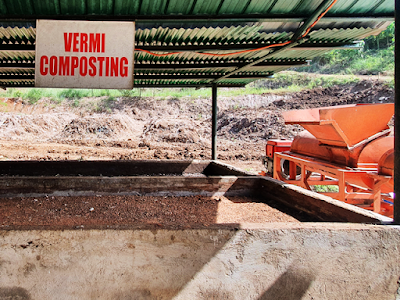The Starter Investor Ideas on Agribusiness Venture Categories
Top 5 Profitable Agri-Business Venture Categories for 2023
TO EFFECTIVELY START AN AGRI-BUSINESS VENTURE, it is crucial to comprehend the distinct characteristics and challenges of the different categories in the agribusiness industry. In this blog post, we will examine five agribusiness venture categories and suggest some noteworthy projects for each.
#1. Aquaculture:
- Bangus Farming
- Tilapia Farming
- Catfish Production
- Shrimp Production
#2. Agriculture:
Agriculture refers to the art and science of cultivating the soil, growing crops and raising livestock, according to the same National Geographic article “The Art and Science of Agriculture.” It is both an art and a science, requiring a deep understanding of the natural systems that support plant and animal life, as well as advanced techniques for managing these systems in ways that promote sustainable food production. While agriculture has played a vital role in human civilization for thousands of years, it is facing new challenges in the modern era, including climate change, soil degradation, and water scarcity. As such, there is an increasing need for innovative and sustainable approaches to agriculture that can meet the growing demand for food while protecting the planet's natural resources. The following are some agri-business ideas falling under this category:
- Cacao Production
- Dragon Fruit Farming
- Herbs and Spices
- Mais Production
#3. Livestock:
- Chicken and Layer Poultry
- Duck Farming
- Goat Production
- Hog and Cattle Raising
- Rabbit Production
#4. Horticulture:
- Moringa
- Vegetables and Fruits
- Azolla Farming
- Landscaping
#5. Sustainable Agricultural Practices:
Multiple definitions for sustainable agricultural practices exist, but they are mostly complementary to each other. Three of these definitions are listed below:
According to an article on Greentumble.com titled “10 Sustainable Agriculture Methods and Farming Practices,” sustainable agriculture is defined as a food system that emphasizes local production, reduces chemical use, conserves energy and water, and values biodiversity. This type of agriculture must prioritize the needs of people by providing nutrient-rich food and improving rural quality of life, while also being profitable and incorporating ecologically sound farming practices that promote healthy biodiversity and resource management.
Meanwhile, sustainable agricultural practices involve the efficient use of natural resources, reducing the impact of agriculture on the environment, and increasing the capacity to adapt to climate change. These practices include crop rotation, increased crop diversity, use of cover crops, no-till and reduced-till systems, integrated pest management (IPM), integration of livestock and crops, sustainable agroforestry practices, and precision farming. Proper management of natural systems and resources is necessary to achieve environmental sustainability in agriculture, which can provide important public goods through ecosystem services. This definition was an adaptation from an excerpt from the new policy brief “Achieving sustainable agricultural practices: From incentives to adoption and outcomes” by Valeria Piñeiro, Joaquín Arias, Pablo Elverdin, Ana María Ibáñez, Cristian Morales Opazo, Steve Prager, and Máximo Torero. The brief is drawn from “A Scoping Review on Incentives for Adoption of Sustainable Agricultural Practices and Their Outcomes,” (Piñeiro et al. 2020, Nature Sustainability).
Finally, the USDA National Institute of Food and Agriculture says that sustainable agricultural practices are intended to protect the environment, expand the Earth’s natural resource base, and maintain and improve soil fertility. Based on a multi-pronged goal, sustainable agriculture seeks to:
- Increase profitable farm income.
- Promote environmental stewardship.
- Enhance the quality of life for farm families and communities.
- Increase production for human food and fiber needs.
Marginal Investor will focus on three subcategories of sustainable agricultural practices in this post. These money-making projects are:
- Soilless sustainable farming systems:
This involves the use of soilless systems such as aeroponics, aquaponics, and hydroponics to grow crops using significantly less water and land compared to traditional farming methods. This reduces the environmental impact of crop production, particularly in areas with limited water resources or poor soil quality.
- Fungi-based sustainable production:
This refers to the cultivation of fungi such as mushrooms using environmentally friendly methods. Fungi-based production is a sustainable alternative to meat production and has a lower environmental impact than conventional livestock farming.
- Soil-based sustainable production:
This involves the use of sustainable soil management practices such as vermicomposting and vermiculture. These practices improve soil fertility and reduce the need for chemical fertilizers and pesticides, which can harm the environment and human health.





